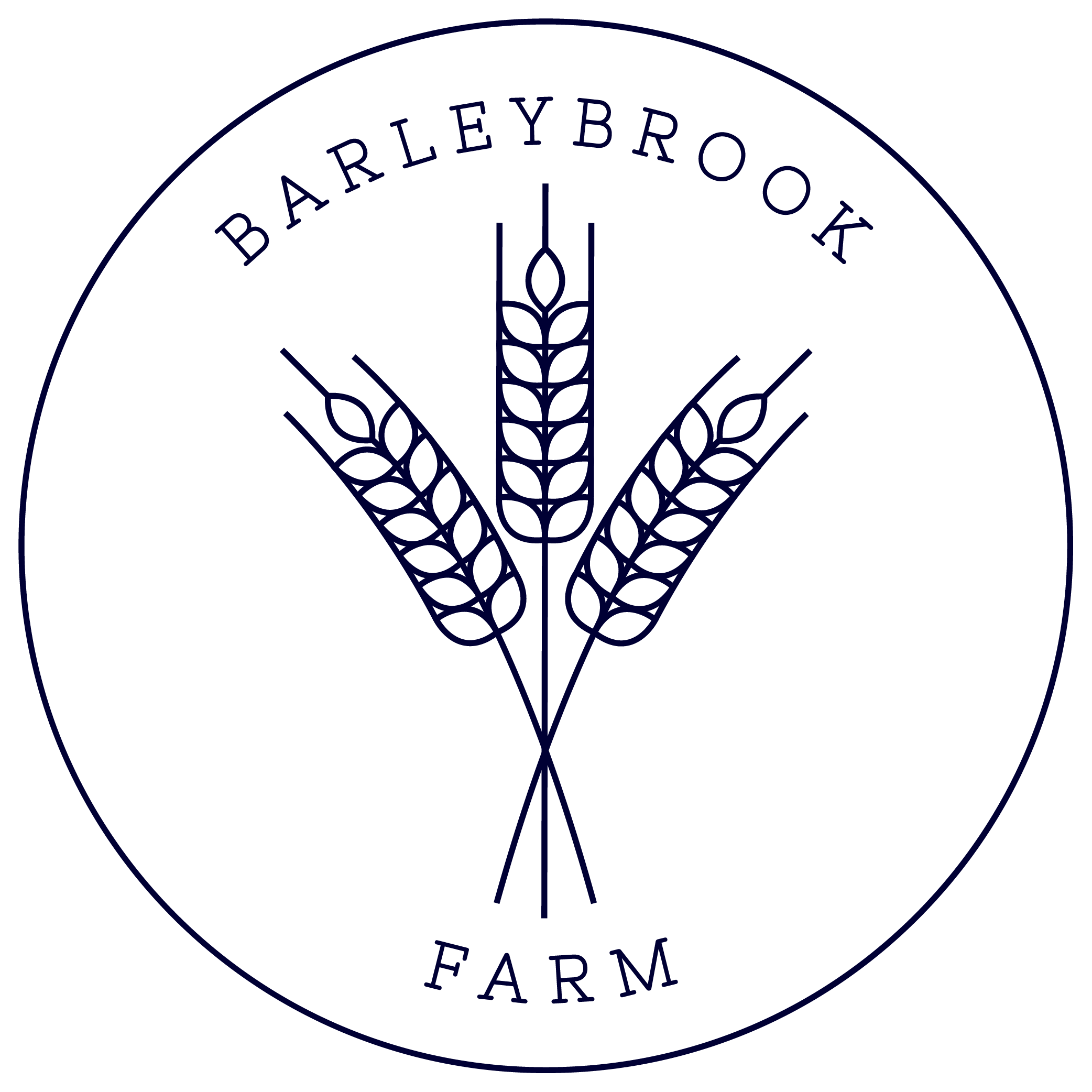The more diverse we are, the better. Some aspects of our production are well underway. Our livestock and grain programs have been running for several years. Others are in progress and make for exciting times ahead on the farm.
CATTLE
We rear a herd of over 100 Limousin cattle. They’re free-range and grass-fed. We limit the amount of time our cows spend inside the barns over winter so they can enjoy fresh air, sunshine and nutrient-rich pasture. We don’t use any growth hormones on our livestock and will only treat them with antibiotics if it’s required to save a life.
The Limousin cow is a strong, attractive breed that was brought over from France in the ‘60s. We work with Limousin because the breed is known for the superb quality of its meat. Relatively lean yet flavourful, Limousin beef is prized by butchers and chefs.
SHEEP
We have a flock of roughly 150 ewes and welcome between 250 and 350 lambs each year. Our sheep are a cross between Charollais and Dorset breeds.
As with our cattle, our sheep spend most of their life outdoors, unless it’s really cold and wet. They move regularly to fresh pasture where they can graze freely.
We bring our sheep to market as hoggets, which means they can be up to 24 months old. We think this is more ethical and results in a better quality product. Hogget tends to have the tenderness of lamb with a more complex taste.
VEGETABLES, SALADS, HERBS & FLOWERS
We’re running a trial garden for vegetables and salads.
This garden is a testing space for new and old vegetable varieties in small batches. One experiment is with Row 7 Seeds. It’s a collaboration between seed breeders and chefs, which produces wonderful products such as spiceless ‘Habanada Peppers’ and ‘898 Squashes’ that fit into the palm of your hand.
While it’s important to focus on crops that are appropriate to the seasons and our region, we do tap into our Antipodean roots. Warrigal Greens, Lemon Myrtle and Finger Limes are being grown in our biomass-heated greenhouse. Here, they can benefit from a consistently warm climate.
Beds for perennial herbs and edible flowers have been put in place. This offers a range of exciting flavours to work with and is a great space for our bees to collect pollen.
BEES
Bees are critical to the food we eat. Through crop pollination, they help plants grow, breed and produce food. Despite this, the role that bees play in our food system is often taken for granted. Climate change, loss of habitat and pesticides have all contributed to declining bee populations.
That’s why we’re excited give bee colonies a new home at the farm. Using the innovative Flow Hive, we will be able to harvest the bees’ honey without jeopardising their safety. The edible and wild flowers will be a perfect environment for bees to pollinate, and in turn, help create a delicious and complex honey.
GRAINS
We grow a range of cereals and pulses on the farm, such as wheat, barley, soybeans and oilseed rape. A low tillage approach to cultivation enables us to care for the soil from which we produce our crops. We actively seek to maintain nitrogen levels in the soil to promote healthy root development for our crops.
CHICKENS (COMING SOON)
We have a small brood of laying Black Sussex hens on the farm. We’re looking to expand this brood quite significantly over time. Black Sussex chickens are among the oldest chicken breeds in the country. Though technically a dual-purpose chicken, we plan to use them predominantly as laying hens.
Individually, the Black Sussex can produce between 260 and 300 eggs. It’s impossible to match the taste of freshly-laid eggs that are warm to the touch, vibrant in colour and rich in flavour. Our chickens roam freely, in search of bugs, worms and seeds. In return, the chickens return vital nutrients to the soil.
PIGS (COMING SOON)
We’re looking forward to introducing a small litter of Berkshire pigs to the farm later this year. Berkshire pork has a truly unique flavour, texture and marbling content that is adored by chefs.
It’s one of the oldest recognised breeds in the world. Post-WWII, the Berkshire went out of fashion because it was considered a slow-growing breed, wasn’t lean enough for consumers’ taste and didn’t perform well in confinement.
But the Berkshire is back in favour. It’s a hardy breed that will be able to spend its entire life roaming our own woodland, feasting on acorns, berries and scrub.
We think offering the most natural diet possible supports the animal’s wellbeing. A natural spring in the woodland will be the ideal place to come down for a drink and cool off.







